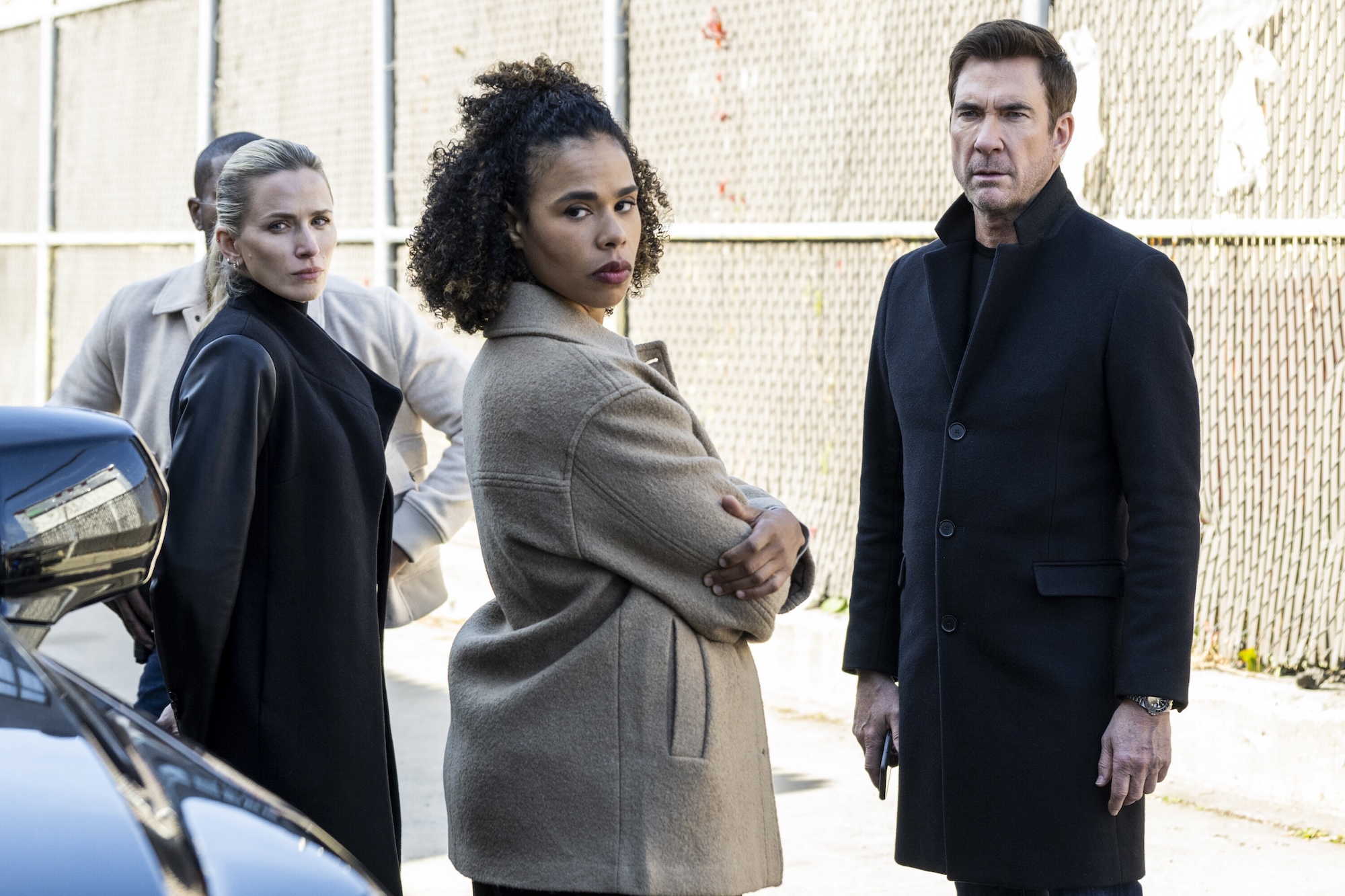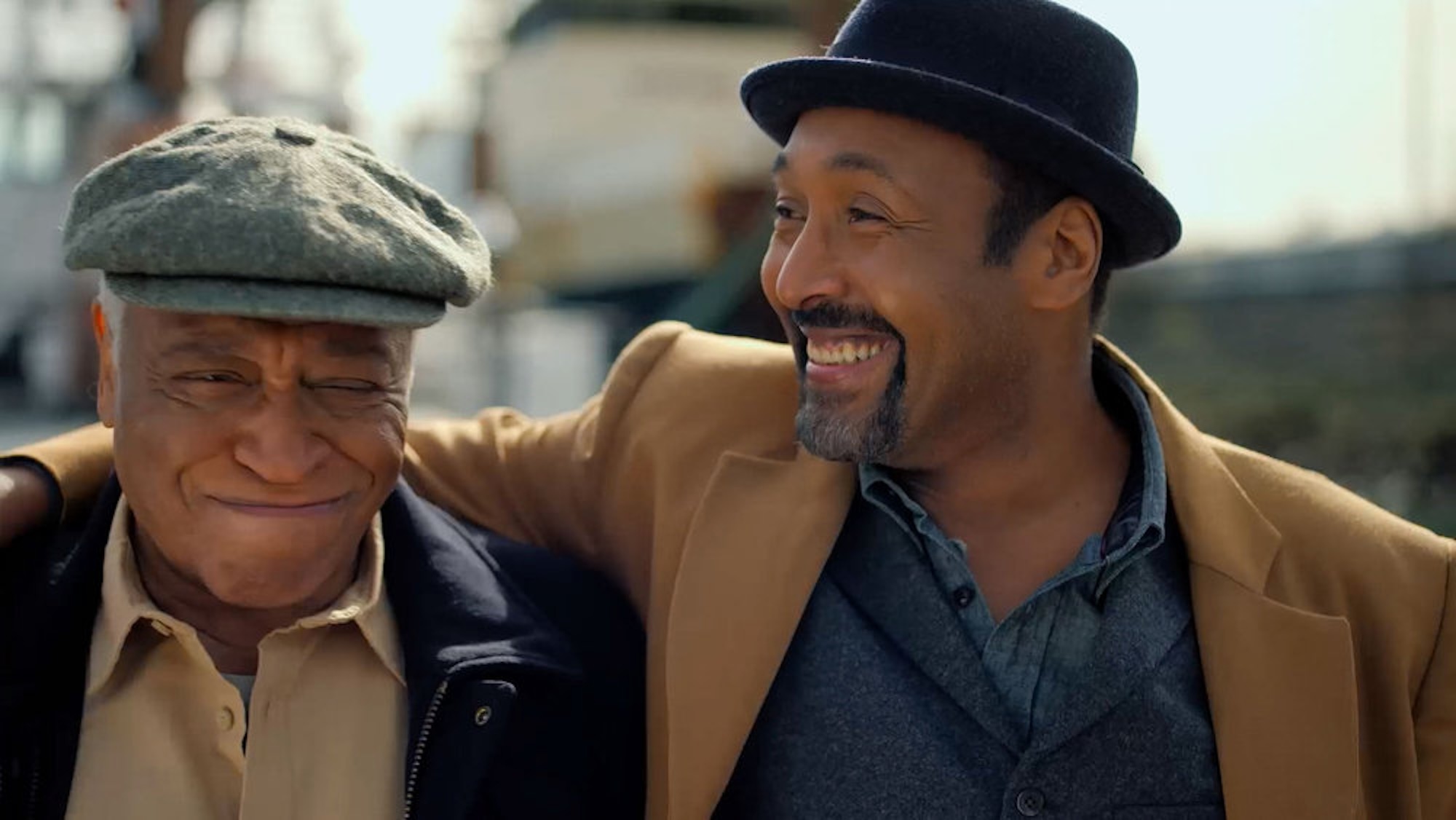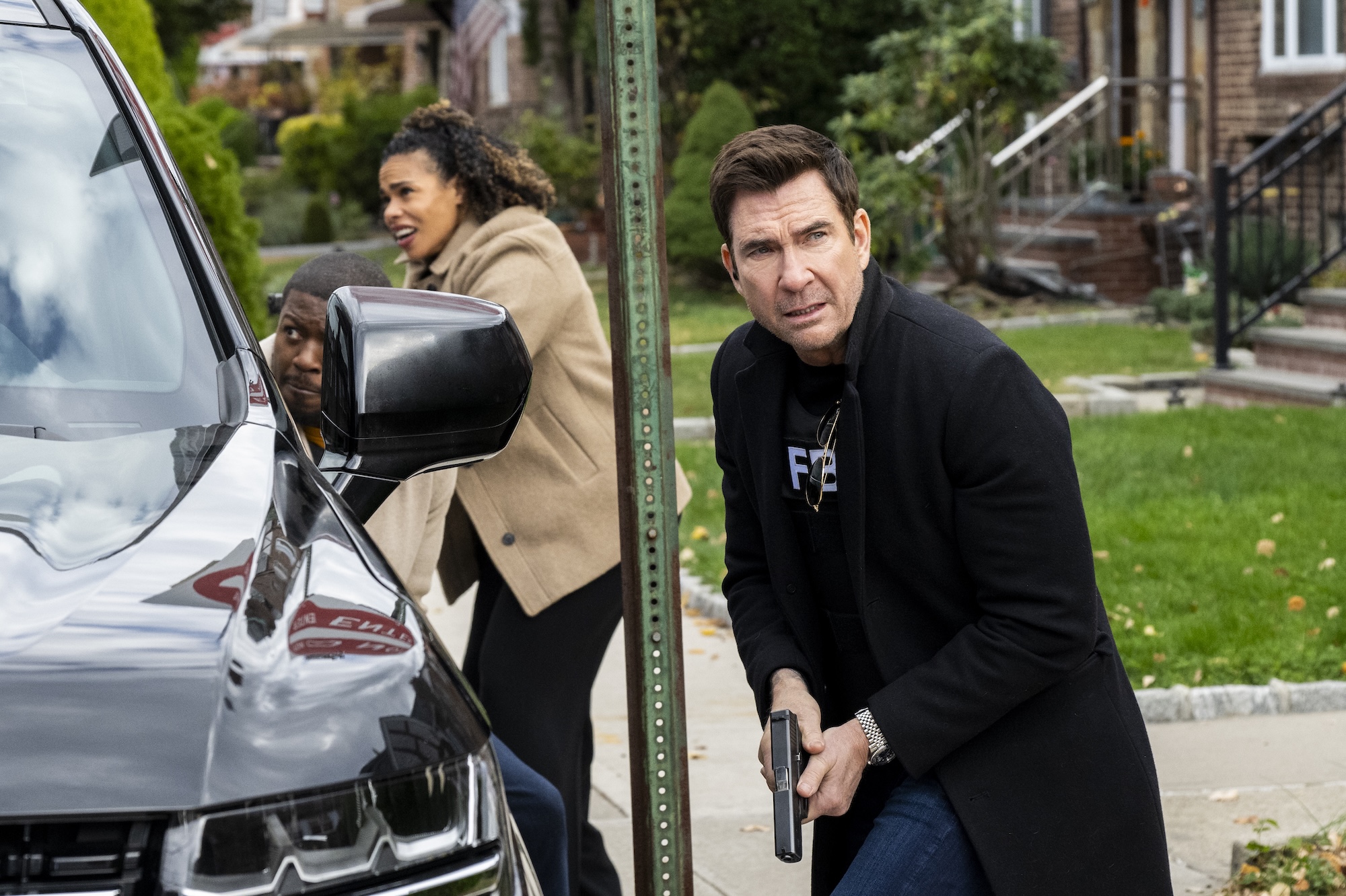In ‘The Mercy of Gods,’ the Authors of ‘The Expanse’ Get Less Expansive
Like all good science fiction fans, Daniel Abraham enjoyed watching Andor. And Abraham knows what he’s talking about when it comes to high-quality sci-fi storytelling: Under the pseudonym James S.A. Corey, Abraham and Ty Franck cowrote the celebrated book series The Expanse and coproduced the television adaptation, which offered genre fans a captivating blend of space opera and political intrigue.
Nearly three years after The Expanse ended, both on-screen and on the page, the James S.A. Corey duo is out with the start of a new series: The Mercy of Gods, the first novel in a planned trilogy called The Captive’s War. This book, which hit shelves last week, is both a satisfying stand-alone read and an excellent setup for the series to come, even if it forecasts a rather different sort of story from The Expanse.
Asked about a key distinction between the two series, Abraham turns to the gritty Star Wars prequel to a prequel to make a point.
Andor excelled because “it felt authentic,” Abraham says. “It was the first time I can remember since the ’70s when I felt like the Empire was really something oppressive, not just guys in cool, dark suits emoting a lot. It was this sense of the danger of that kind of vast machine.”
There is perhaps no machine more oppressive, more dangerous, and more vast than the Carryx empire in The Mercy of Gods: a race of warlike aliens who are set on conquering the galaxy and can slaughter millions without strain, due to their military might and incomprehensibly advanced technology. Andor is an apt comparison, as this new series details the flickers of a burgeoning rebellion against overwhelming imperial odds. “It’s survivors versus authoritarians,” Franck says. “It is what happens to you when you are conquered by a militaristic authoritarian regime and you have to learn to live inside that regime.”
The Mercy of Gods starts on a human planet—not Earth—thousands of years in the future. Dafyd Alkhor is a research assistant in a biology lab, consumed by the petty desires and complications of any average human life: routine data collection, a workplace rivalry, a secret crush.
Then everything changes when the Carryx attack. They kill some humans and take others (including Dafyd) prisoner, transporting them back to their homeworld for a seemingly simple test: If the surviving humans can make themselves useful, they’ll live; if not, they’ll die, too.
The Captive’s War employs a narrower narrative lens than The Expanse, at least in the first book. Almost all of the focus in Mercy is on Dafyd and his lab partners—each of whom develops as a unique and relatable character, just as James Holden’s crew on the Rocinante flourish as both a collective unit and individual beings. But some of The Expanse’s other highlights, such as planet hopping and intricate politicking, are largely absent from the new novel.
This tightened focus extends to the series’ structure. While The Expanse spanned nine books, The Captive’s War will be three. “It’s not doing the same kind of genre skipping that The Expanse did, because The Expanse did its Western, it did its noir, it did its political thriller,” Abraham says. “The Captive’s War is really, in a way, a more cohesive story than The Expanse had the ability to be.”
(That’s the high-minded way to look at the difference, at least. Franck offers a simpler explanation, with a laugh: “We didn’t want to write nine books again.”)
The new novel suffers from the lack of political maneuvering; there’s no Chrisjen Avasarala or Winston Duarte analogue in Mercy. Its world can sometimes feel too small (though a development at the end of the book suggests an expansion—no pun intended—to come in the sequel).
Yet at other points, Mercy’s world-building makes its universe feel unknowably gigantic. In The Expanse (spoiler alert), the alien threats never actually appear; the authors thought they’d add more menace as looming, Lovecraftian specters. But in Mercy, aliens abound, as the human prisoners interact with and observe creatures of all shapes, sizes, and lifestyles.
Here, the authors utilize the delightful genre trick of implying a much larger world than is actually relevant to the plot. The human captives are housed in a massive pyramid where they encounter those multifarious species, but that’s merely the prison for “the other oxygen breathers,” Franck says. The humans also see other immense pyramids in the distance, which hold yet more aliens who live in sulfuric atmospheres, in water, and so on.
“The idea of this is to give that sense of vast scale,” Abraham says. “The idea is I want this to feel huge. I want this to feel complex.”
As is typical of a Corey novel, Mercy is also punctuated by moments of violence and humiliation and despair. The authors have always been able to turn darkness into page-turning thrills, and Mercy’s bleakest sections approach—if don’t ever quite reach—the worst protomolecule-induced horror that The Expanse ever presented.
But there’s a light at the end of the tunnel. On the book’s very first page, a flash-forward reveals that the Carryx empire falls and that Dafyd is somehow responsible. This choice was made partly for tonal balance, to compensate for all that darkness. “If you didn’t have some ray of hope, this would be a brutal read,” Abraham says.
Even more, it creates a compelling mystery that will carry through the rest of the series. The Carryx empire seems omnipotent and completely unbothered by humanity. It doesn’t murder and enslave humans because of any hatred or rivalry; the humans are simply resources to be exploited. As one of the Carryx analogizes in the book, when a human cuts down a tree branch, “the tree had no power to stop you, and so it became a tool in your hand.”
But somehow, the human tool named Dafyd will take down an empire. What could be an early spoiler is, instead, the engine for the rest of the plot. Franck explains, “When a guy says, ‘Let me tell you about the first time I killed a crocodile,’ and then the scene opens with a guy being dropped naked into the middle of a crocodile pit, the question isn’t, Did he survive and kill a crocodile? The question is, How the fuck did a naked guy in a crocodile pit actually beat one of them?”
That setup is reminiscent, incidentally, of Andor: Everyone watching Cassian, Luthen Rael, and Mon Mothma struggle against the might of the Empire knows that, eventually, the underdog rebels will succeed in creating the sunrise that Luthen knows he’ll never see. But the tension and entertainment value come from learning how they reach that sunrise and how they endure all the dark nights they face along the way.
The same looks to be true of The Mercy of Gods. With all of its alien surroundings, and without Earth and our familiar solar system as a backdrop, this new series doesn’t appear remotely as adaptable as The Expanse. It would be a surprise if Dafyd defeats the Carryx on television screens anytime soon.
But this story lives just as wonderfully on the page. “The first book is telling you all the reasons why [the Carryx empire] can’t fail: It’s too big, it’s too powerful,” Franck says. “So the tension is: What could this guy possibly have done to bring this about?”







